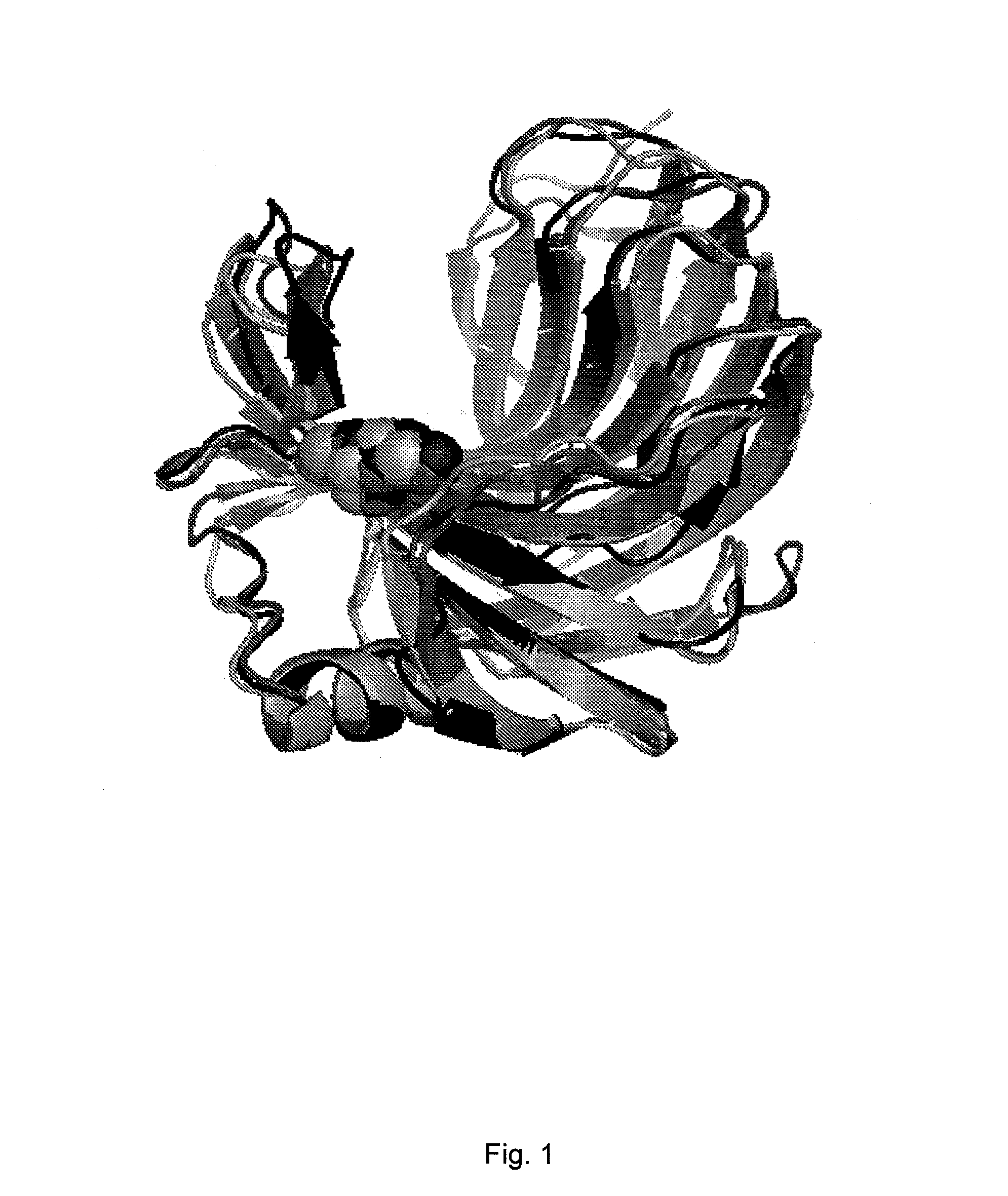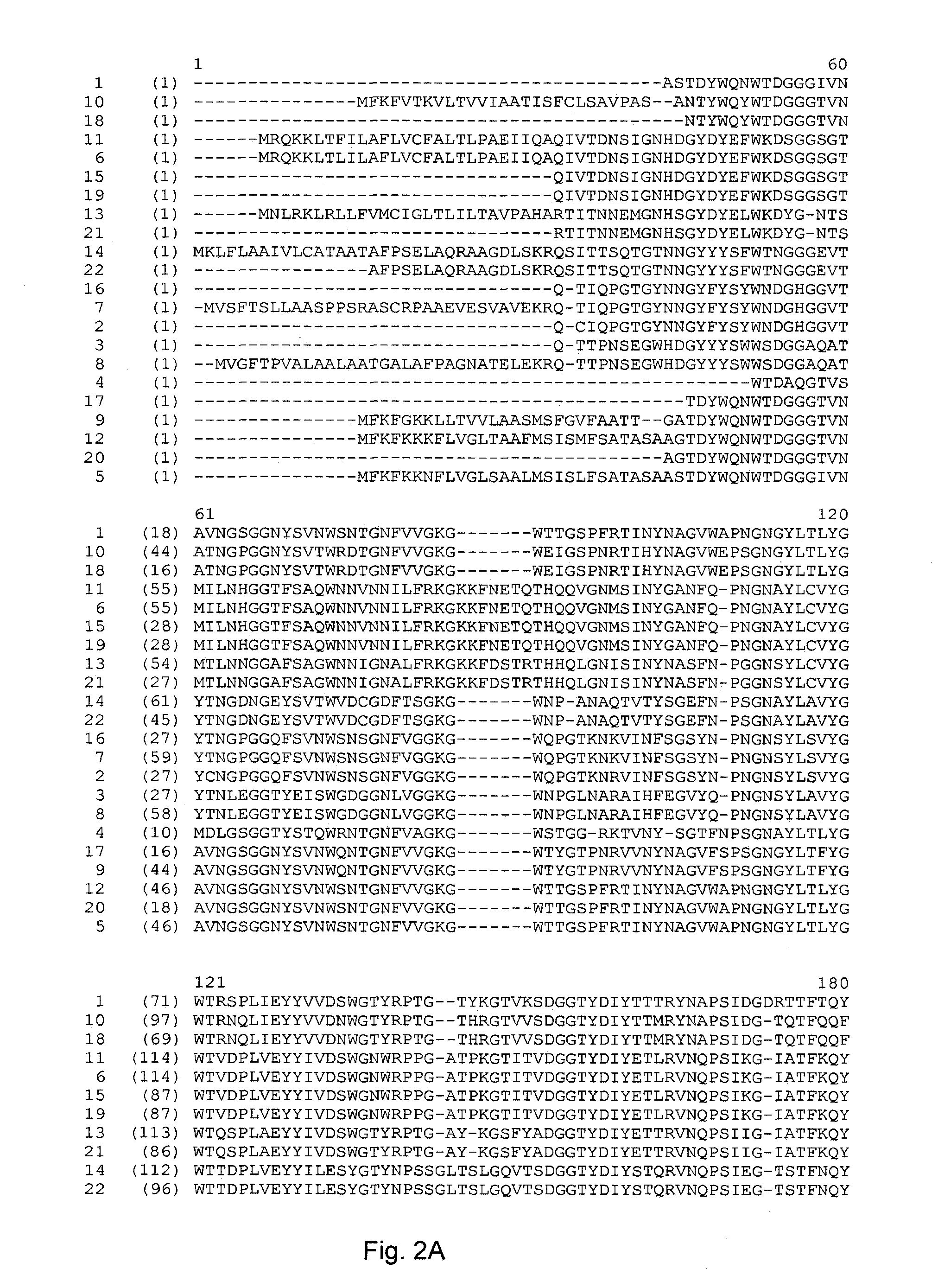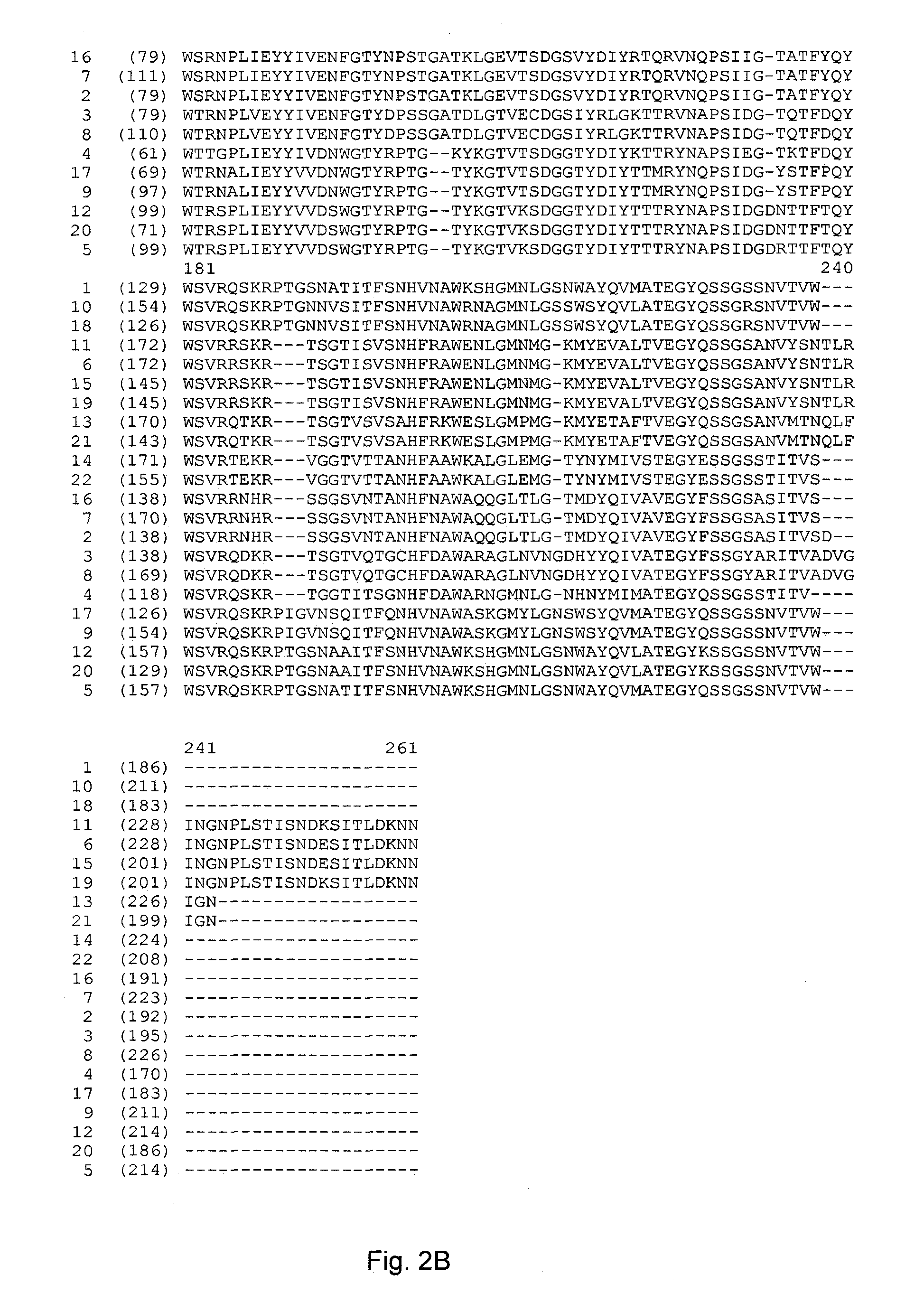Polypeptides with xylanase activity
a polypeptide and xylanase technology, applied in the field of polypeptides with xylanase activity, can solve the problems of less efficient xylanase molecule, less recent literature that finds the same huge differences in substitution degree, and insufficient solubilisation of bran and/or xylanase activity of enzymes
- Summary
- Abstract
- Description
- Claims
- Application Information
AI Technical Summary
Benefits of technology
Problems solved by technology
Method used
Image
Examples
example 1
Site-Directed Mutagensis of Xylanases and Expression
[0449]Specific mutants of the Bacillus subtilis xylanase were obtained using a construct comprising the ribosome binding site from pET24a (ctagaaataattttgtttaactttaagaaggagatatacat) fused to the wild type xylanase gene without signal sequence (atggctagcacagactactggcaa - - - tggtaa) was transferred to the vector pCRBlunt (InVitrogen, Carlsbad, Calif., USA). This resulted in constitutive expression of xylanase in TOP10 cells (InVitrogen) after transformation with the constructed vector, provided that the orientation of the gene is in a “clockwise” direction. Site directed mutation in the gene was then obtained by the use of the “QuickChange” mutagenesis kit (Stratagene, La Jolla, Calif., USA) according to the manufacturers protocol. Mutants were verified by sequencing. Sufficient production of the verified mutants was obtained by growing the transformed TOP10 cells in 1 L scale.
example 2
Bran Solubilisation Studies of Xylanase Mutants
[0450]We used wheat bran as substrate to evaluate the specific activity of the xylanase variants since this is used in commercial applications.
Bran Substrate:
[0451]By means of example, bran could be wheat bran obtained from dry milling of wheat using a lab scale Chopin CD Auto Mill (Chopin Technologies, France), using the setting and conditions provided by the supplier, for milling wheat into wheat flour and bran. The obtained bran fraction may be used as substrate in the bran solubilisation assay. In this Example wheat was used as the cereal source.
[0452]A suspension of wheat bran in (0.1 M)—di-sodium-hydrogen phosphate (0.2 M) buffer, pH 5.0 is prepared to an concentration of 1.33% bran (w / w). From this suspension, aliquots of 750 l are transferred into eppendorph tubes under stirring. Each substrate tube is pre-heated for 5 minutes at 40° C. Hereto, 250 μl enzyme solution is added, making the end concentrati...
example 3
Testing of Xylanase Activity and Relative Inhibition by Cereal Xylanase Inhibitors
[0458]The mutants of Example 2 were tested for xylanase activity and relative sensitivity to a xylanase inhibitor by the protocols presented below and in accordance with the following teachings.
Xylanase Assay (Endo-β-1,4-Xylanase Activity)
[0459]Samples were diluted in citric acid (0.1 M)—di-sodium-hydrogen phosphate (0.2 M) buffer, pH 5.0, to obtain approx. OD590=0.7 in this assay. Three different dilutions of the sample were pre-incubated for 5 minutes at 40° C. At time=5 minutes, 1 Xylazyme tablet (crosslinked, dyed xylan substrate, Megazyme, Bray, Ireland) was added to the enzyme solution in a reaction volume of 1 ml. At time=15 minutes the reaction was terminated by adding 10 ml of 2% TRIS / NaOH, pH 12. Blanks were prepared using 1000 μl buffer instead of enzyme solution. The reaction mixture was centrifuged (1500×g, 10 minutes, 20° C.) and the OD of the supernatant was measured at 590 nm. One xylan...
PUM
| Property | Measurement | Unit |
|---|---|---|
| temperatures | aaaaa | aaaaa |
| temperatures | aaaaa | aaaaa |
| temperatures | aaaaa | aaaaa |
Abstract
Description
Claims
Application Information
 Login to View More
Login to View More - R&D
- Intellectual Property
- Life Sciences
- Materials
- Tech Scout
- Unparalleled Data Quality
- Higher Quality Content
- 60% Fewer Hallucinations
Browse by: Latest US Patents, China's latest patents, Technical Efficacy Thesaurus, Application Domain, Technology Topic, Popular Technical Reports.
© 2025 PatSnap. All rights reserved.Legal|Privacy policy|Modern Slavery Act Transparency Statement|Sitemap|About US| Contact US: help@patsnap.com



